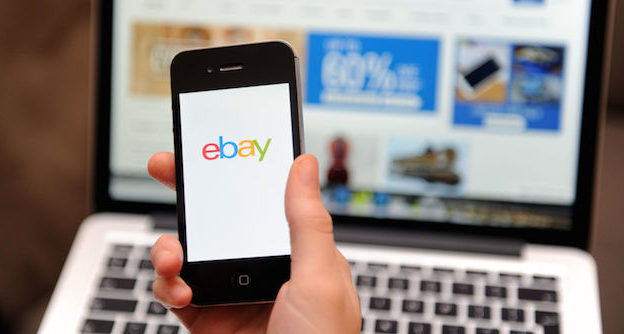
Australian Made and eBay have joined forces in response to growing demand for local products.
The COVID-19 pandemic has sent Australia’s economy into a tailspin, but eBay’s local managing director Tim MacKinnon is already preparing the decks for the next wave of Aussie entrepreneurs.
The e-commerce executive tells SmartCompany he’s expecting plenty of new businesses to start up in the wake of the most difficult six months in Australia’s modern memory, as shoppers at home and abroad find renewed interest in locally produced products.
“I’m really bullish, we’re going to see more Australian entrepreneurs as a result of COVID,” MacKinnon says. “People are already setting up home-based businesses to take advantage of online shopping.
“There’s a huge role we can play in helping sell more Australian products overseas.”
EBay Australia has today launched a partnership with Australian Made that will see its sizable e-commerce platform mobilised to spotlight brands selling locally made products.
A new “Australian Made on EBay” section of the company’s platform has been set up to filter specifically for products made Down Under in a bid to capitalise on growing interest in self-reliance in the wake of the pandemic.
Since April, eBay has tracked a 57% annual increase in sales from Australian Made brands among its 11 million or so monthly unique visitors.
“There’s been this trend towards local provenance and having some connection to products; COVID and national emergencies tend to increase that desire,” MacKinnon says.
“There’s something about humans that when we’re challenged by things we like to find connections to things we know and trust.”
EBay has been raking in new sellers since the pandemic started, benefiting from a shift to e-commerce among mum-and-dad retailers who’ve previously only traded through physical shops.
Over the past five months, there’s been a 35% increase in the number of certified Australian Made sellers on the platform, a number that MacKinnon expects will keep growing.
“We’ve decided to lean in more and really identify those sellers where the product is really made in Australia, which creates even more value for the Australian community,” MacKinnon explains.
Less than 12 months ago, the Australian Made movement, launched by Prime Minister Bob Hawke in the 1980s, was undergoing somewhat of an identity crisis, with the old “true blue” marketing mentality falling flat with younger shoppers.
Now, amid growing realisation that locally produced products have significant advantages in times when global supply chains are on the fritz, Australian Made has been making headlines.
Aussies of all stripes rushed to defend the classic green-and-gold kangaroo logo earlier this month when the National Brand Advisory Council suggested that a new logo, depicting the golden wattle, be pushed to represent Australia’s brand overseas.
The entire thing turned into a bit of a media furphy, but it did highlight how attached many are to Australian Made and its role in promoting locally made products overseas, and at home.
For Australian Made chief executive Ben Lazzaro, who was quick to note that the Kangaroo is not, in fact, going anywhere, the experience was a vote of confidence in Australians’ attachment to the national brand.
“It demonstrated the support for the Australian Made logo, and not just from a nationalistic point of view, but the fact that it’s an effective tool for making the connection between a product and Australia,” he tells SmartCompany.
“Kangaroos work.”
Bouyed by the community response to the campaign in recent months, Lazzaro is expecting a big uptick in businesses producing locally and, in turn, a large increase in consumer interest.
“This will drive a permanent shift towards locally produced products,” he says.
“We’re going to keep the pedal to the metal and keep on championing Australian manufacturers.”
NOW READ: Shopping centre vacancies hit 20-year high as COVID-19 wreaks havoc on retailers
NOW READ: This crisis is different: E-commerce, coronavirus and the looming recession


COMMENTS
SmartCompany is committed to hosting lively discussions. Help us keep the conversation useful, interesting and welcoming. We aim to publish comments quickly in the interest of promoting robust conversation, but we’re a small team and we deploy filters to protect against legal risk. Occasionally your comment may be held up while it is being reviewed, but we’re working as fast as we can to keep the conversation rolling.
The SmartCompany comment section is members-only content. Please subscribe to leave a comment.
The SmartCompany comment section is members-only content. Please login to leave a comment.